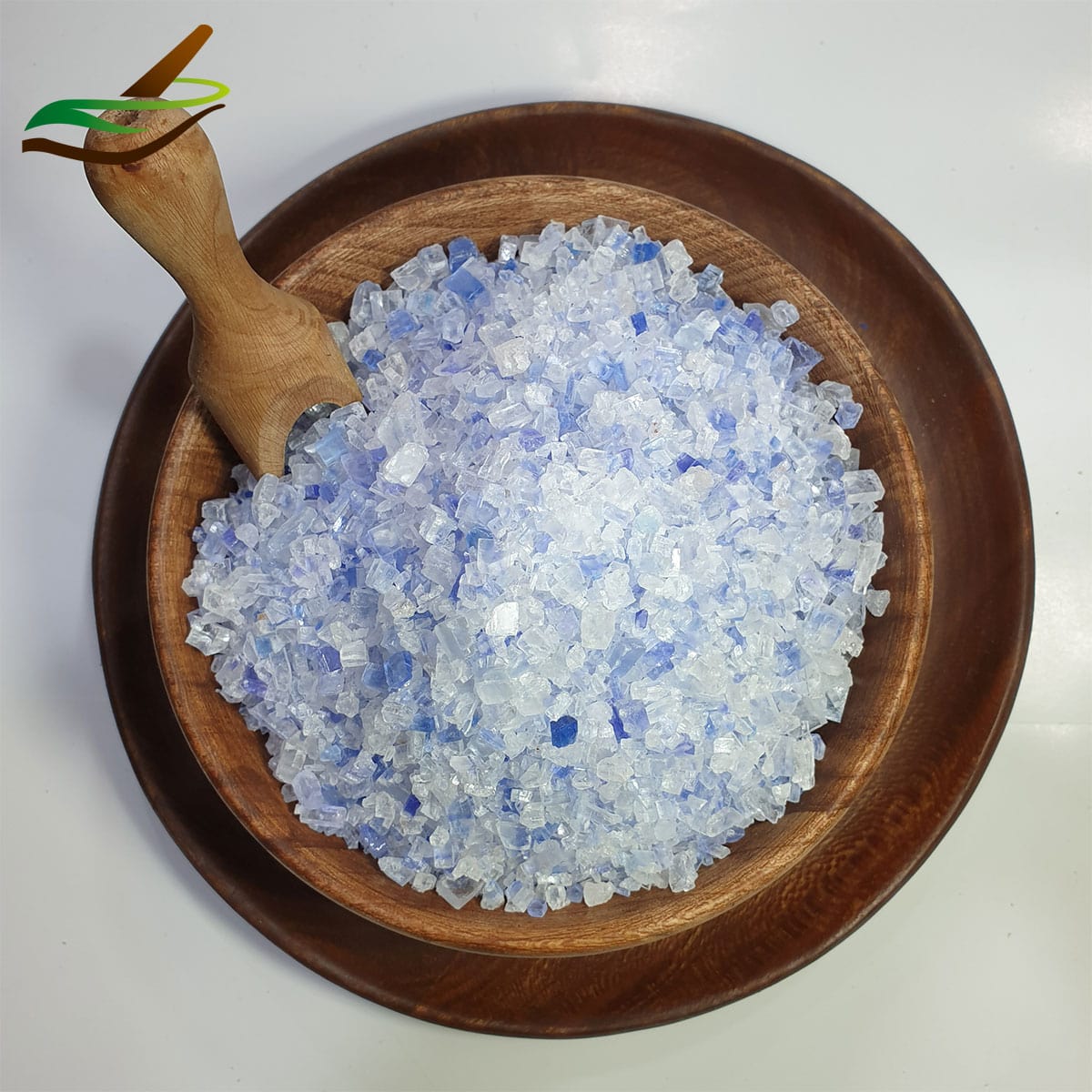
- by somaye
- Spices / useful article
- June 26, 2022
- Post Views: 1,826
- 0
Beautiful and fragrant Persian blue salt is one of the rarest and most valuable and probably one of the most unusual edible salts in the world market today. It is surprising both for the bluish glints that play in its crystals and for its subtle citrus-like flavor. It gets its name from the majestic bright bluish reflections that give it the appearance of a valuable stone. This rare salt is very popular with gourmets, it is also a beauty ally in cosmetics and an air purifier. The blue color of this Iranian salt comes from the mineral potassium chloride, which is naturally present in the crystal structure of salt and has no artificial additives. Calcium, magnesium, iron, and potassium are all abundant in this salt.
History of Persian blue salt
As you may be aware, there are various forms of salt in the globe, with Persian blue salt being one of the rarest. One of the reasons of having blue color is light refraction of salt crystals The intense pressure under which the salt was created millions of years ago is the cause of this failure. Because it comes from waters that dried up more than 200 million years ago, Iranian blue salt is one of the cleanest and purest salts available. Unlike sea salt which is extracted from salt ponds, Persian blue salt is a salt fossil or gem, whose crystals were formed 100 million years ago in the Precambrian seas. Rock of this salt is hand mined from a single mine in northern province Semnan in Iran which was once bathed by the Precambrian sea. It’s a mineral that we usually find in pink tones, which is what makes its blue color such a strange phenomenon, as well as giving it its value.

Taste of Persian blue salt
Salt is undoubtedly the most important spice and flavoring in kitchens. As you know, there are different types of salt in the world, one of the rarest of which is blue rock salt. Blue Persian Salt is characterised by an intense flavor that combines perfectly with the sweetness we find in these salts, in addition to its crunchy texture and dryness. Its bright, almost lemony flavors, according to some, lessen the acidity of meals. Because it’s a very dry salt, it’s simple to use in your salt mill!
Properties of Persian blue salt
Iranian blue salt is known worldwide for both its millions of years of history and its special properties. It has many health benefits, including a high percentage of iron, calcium which is great for our bones, and potassium. Potassium helps reduce blood pressure and cardiovascular health. Potassium is also good for muscular and bone strength, and it can assist prevent muscle mass loss. It plays a role in a number of important bodily functions, and adults should ingest 4700 mg each day.
The properties of this salt are: antiseptic and antibacterial properties, regulate blood pressure, regulate body balance, strong anti-stress, regulate sleep, aid digestion, relieve some respiratory problems, increase immunity, prevent muscle spasms, useful for oral health and many more.
Cosmetics and skin care
Blue salt rock can also be found in the cosmetics and skin care sectors Because of its enzymes, blue salt rock is commonly used in exfoliating skin masks.
It’s an active detoxifier that can be used to rid the skin of toxins that have accumulated between the layers. It has draining and remodelling properties.
Potassium which promotes blood circulation. It regulates skin hydration and acts as a pH balancer Against bacterial cells, it has astringent and osmotic effects. It counteracts oxidation.
Magnesium against oxidative stress and toxins. It traps free radicals and reduces the production of inflammatory messengers that speed up skin aging and sensitivity. Aids in the reduction of water retention and the purification of the skin. Calcium is essential for the skin’s health since it aids in its preservation.






